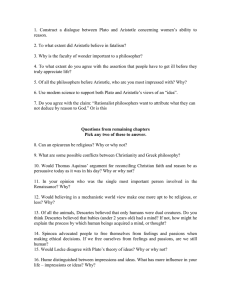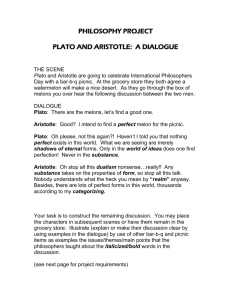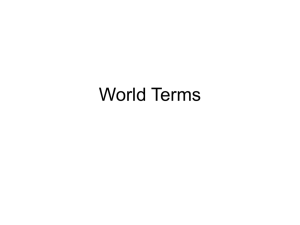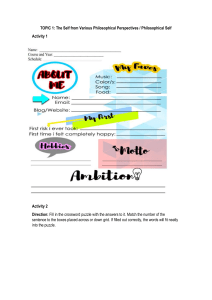Sophie`s World Questions
advertisement
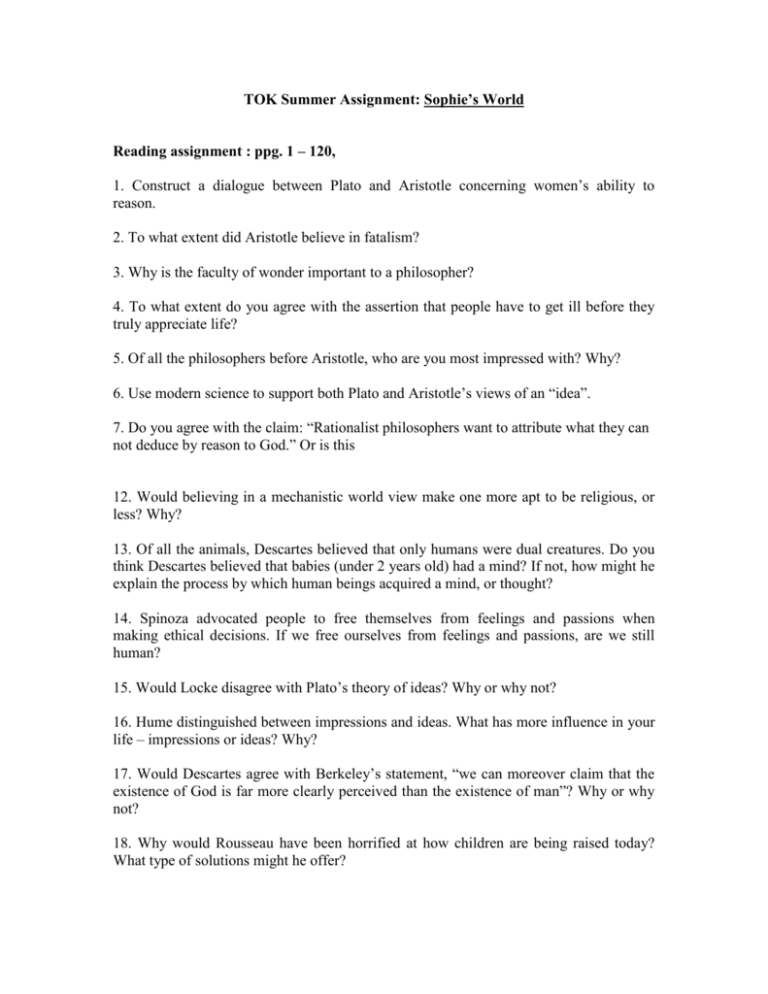
TOK Summer Assignment: Sophie’s World Reading assignment : ppg. 1 – 120, 1. Construct a dialogue between Plato and Aristotle concerning women’s ability to reason. 2. To what extent did Aristotle believe in fatalism? 3. Why is the faculty of wonder important to a philosopher? 4. To what extent do you agree with the assertion that people have to get ill before they truly appreciate life? 5. Of all the philosophers before Aristotle, who are you most impressed with? Why? 6. Use modern science to support both Plato and Aristotle’s views of an “idea”. 7. Do you agree with the claim: “Rationalist philosophers want to attribute what they can not deduce by reason to God.” Or is this 12. Would believing in a mechanistic world view make one more apt to be religious, or less? Why? 13. Of all the animals, Descartes believed that only humans were dual creatures. Do you think Descartes believed that babies (under 2 years old) had a mind? If not, how might he explain the process by which human beings acquired a mind, or thought? 14. Spinoza advocated people to free themselves from feelings and passions when making ethical decisions. If we free ourselves from feelings and passions, are we still human? 15. Would Locke disagree with Plato’s theory of ideas? Why or why not? 16. Hume distinguished between impressions and ideas. What has more influence in your life – impressions or ideas? Why? 17. Would Descartes agree with Berkeley’s statement, “we can moreover claim that the existence of God is far more clearly perceived than the existence of man”? Why or why not? 18. Why would Rousseau have been horrified at how children are being raised today? What type of solutions might he offer? 19. Kant felt that time and space are our natural modes of perception, not necessarily actual physical attributes. Is there anyway a human being can prove him wrong? 21. Hegel believed in a dialectic process of evolution of thoughts. Give an example of such a process that is not stated in the chapter of Sophie’s World on Hegel. 22. Do you agree with Kierkegaard that all things we can know through reason or knowledge are totally unimportant? Why or why not? 23. If Marx were alive today, do you think he would predict the United States to eventually come under communist rule? Why or why not? 24. Do you believe that natural selection is working in such a way that humans will be able to understand more complicated mathematics in the future? Why or why not? 26. Do you agree with Sartre that there is no innate human nature? What type of person (physicist, biologist, sociologist, antropologist, psychologist, philosopher, etc.) do you feel is most qualified to make a judgement on this question? Why?
